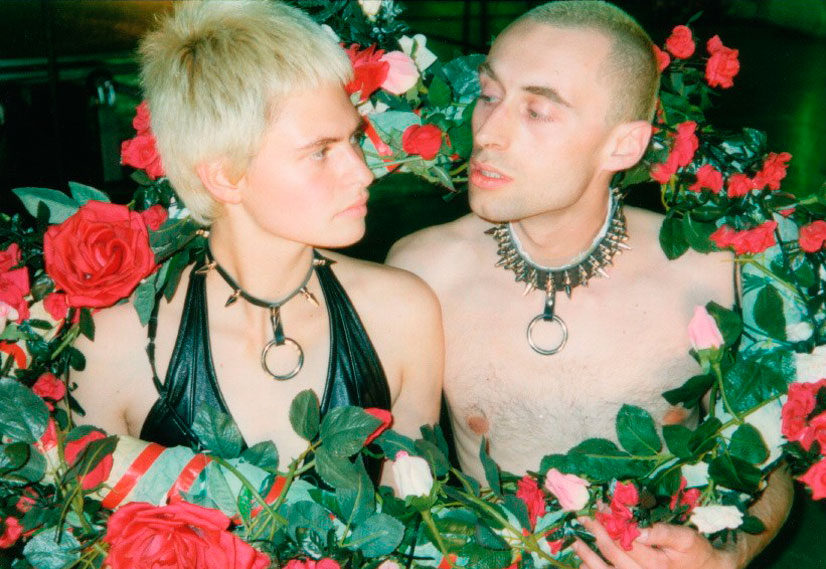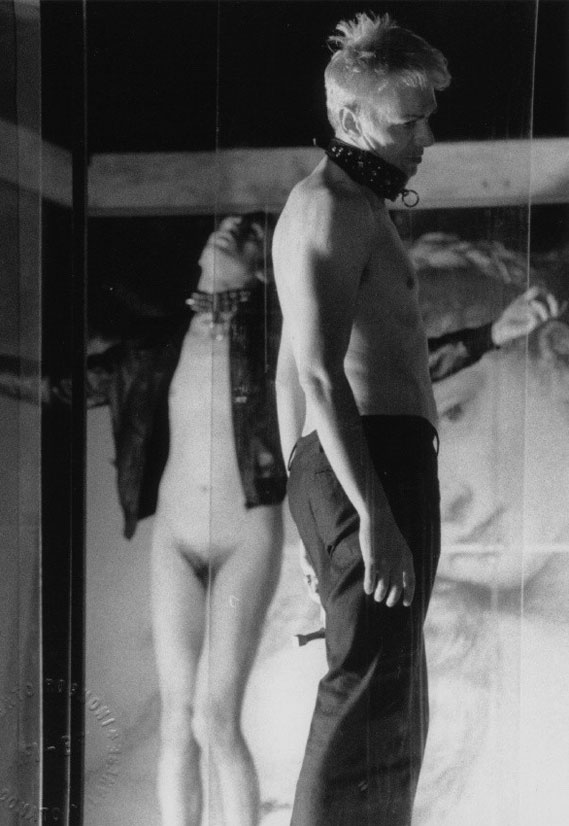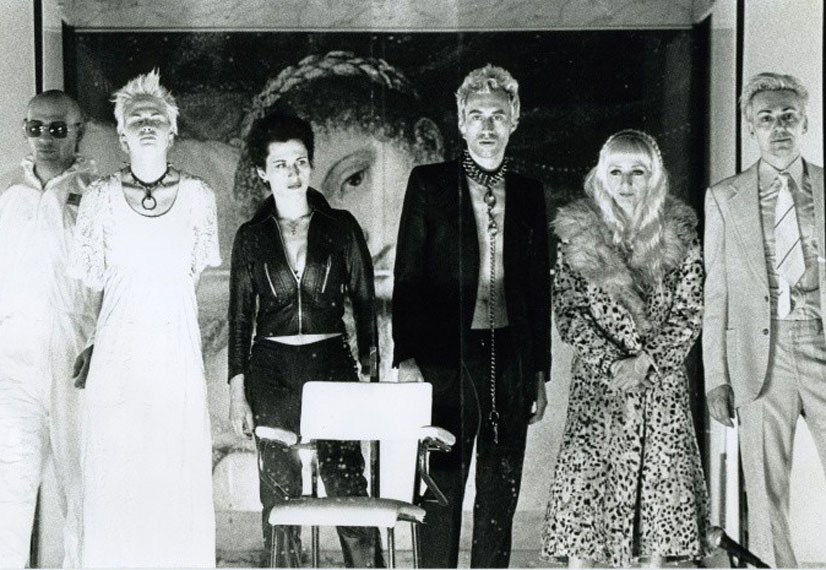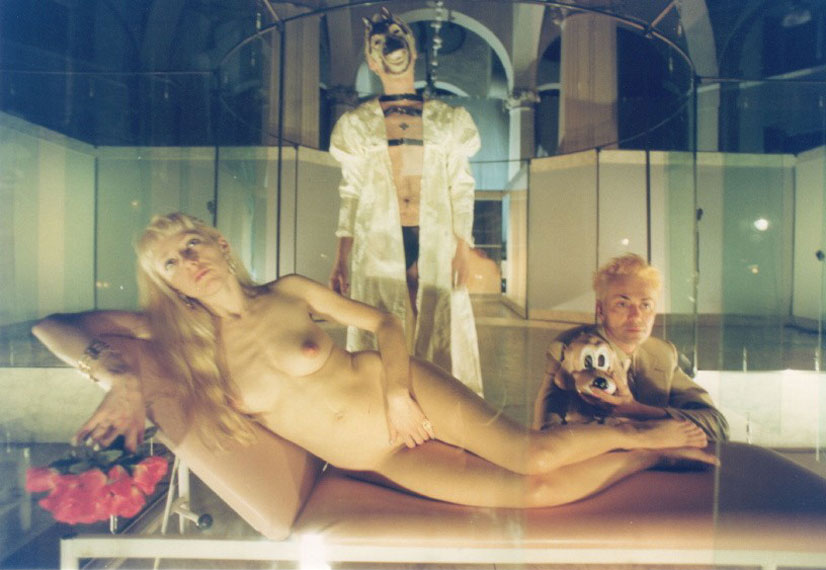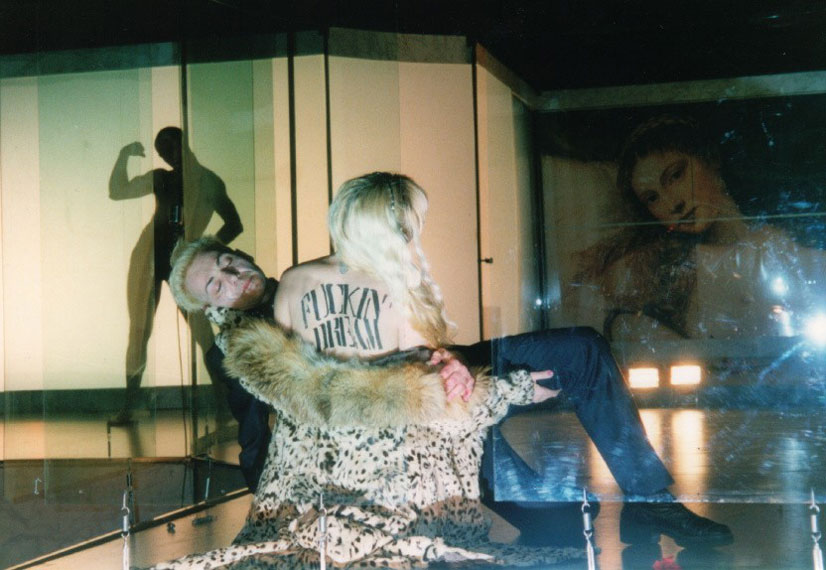
©Cristina Zamagni
“I am not -am not what I seem to sight: What Roland was is dead and under ground, Slain by that most ungratefullady’s spite, Whose faithlessness inflicted such a wound. Divided from the flesh, I am his sprite, Which in this hell, tormented, walks its round, To be, but in its shadow left above, A warning to all such as thrust in love”
Ludovico Ariosto, Orlando Furioso canto 23
Performed by Motus is inspired by the epic poem Orlando Furioso written by Ludovico Ariosto from 1516-1521. Ariosto’s poem, one masterpiece of Italian literature, is written in late Renaissance when anthropocentric life vision has reached a crisis.
The poem is staged during the Crusades, the war between Christians and Saracens when the latter scatter Charles The Great’s Army and besiege Paris.
The poem tells the story of a crowd of characters but the leading story is that of Duke Orlando.
Orlando, the bravest knight in Christian army, is in love with the beautiful Angelica the princess of Catai. The duke saves the girl and quarrels with his cousin Rinaldo because of her love. However, Angelica runs away from him wandering in the forest. From that moment on a lot of misadventures happen to her. She meets a lot of men who fall in love with her, but she can’t feel any passion for them.
The obsession for Angelica drives Orlando to neglect his duties, he withdraws when the Saracens lay the siege to Paris and he starts to wandering and following the clues, traces that she has left behind. He follows her but as soon he arrives in any of the places, he finds that she has already left. So the quest becomes more and more obsessive and desperate. Even if his lady is far from him he is able in any moment to perceive her being in danger, and he hears screaming and crying. Though the Duke Orlando is never able to reach her. The battles and quarrels, he fights with whoever he find on his way, becomes idle and vain efforts.
After a long wandering Angelica finds a Muslim soldier, Medoro, who is dying. The lady eases his wounds saving the young man and at last she falls in love with this humble warrior. Now, they are in love and happy, Medoro writes about their mutual passion on trees and rocks. Angelica doesn’t think of Orlando anymore.
As soon as Orlando arrives in the place where the two loved each other, finding out that Medoro and Angelica have left together to start a new life, he goes totally mad. He destroys whatever or whoever he finds on his way.
Astolfo, a true fellow of the duke, is the one who saves him. In fact the knight goes onto the moon in order to find the wisdom that Orlando has lost because of the mad and desperate love. It is a Mediaeval belief that when something gets lost on the earth, it goes on the moon and that’s why Astolfo has to reach the moon to bring back to Orland o his wisdom.
Eventually, the Duke Orland ois the brave knight again, who fights with his fellow for his people and his king.
Motus chose to read and translate in a modern vision some suggestions of the Renaissance poem; a poem that was considered outrageous when published. Orlando Furioso is a very complex and huge work and it can’t be put on a play in slavish way. Motus main concern is the possibility to confront and manipulate the epic poem: a process through which demolishing and transforming the ideas behind the story. Motus doesn’t aim at representing the vicissitudes told by Ariosto, the story -better the stories- is an occasion for thinking and re-thinking about topics of heroism, love and passion. The fury of love/hate is the mover in Orlando Furioso, which is an extraordinary poem on the endless movement that can’t be stopped…. Orlando Furioso is a piece of work with a circular structure, in which everything happens while everything flows….
The poem has got a labyrinthine structure, which rests on several levels of meanings: a starting point for building the performance.
A big Greek cross-shape stage with has got a round platform at the centre, is created in order to translate the whirling and giddy structure of the story. In this effective scene the characters are carrying out their continuos movements and meetings, clashes. The actors are acting as sound machines; they perform – shout – sing love words over the microphones, while a noise of war and hooves is heard on the background….
The exclusive and absolute obsession of the characters in Ariosto’s work becomes a sort of mania and fetishizing the object of desire. Orlando is obsessed by Angelica, or by the image of this elusive and unattainable lady; because of this mania, the brave knight chooses feeling rather than duty, the impossible love rather than the war, eventually bursting into a horrible obscene madness. The obsession -whatever it is- lead men to neglect their usual leading life and becoming animals, if first faithful dogs, later furious and wild ones.
The following phases of the Orlando’s madness comes from the mediaeval tratatises on medicine. The “love disease” was called “AMOR HEROYCUS” (heroic love) a feeling, that is a degenerate attraction towards an object or a person, becoming a fixed idea and well represented by the image of the dog.

